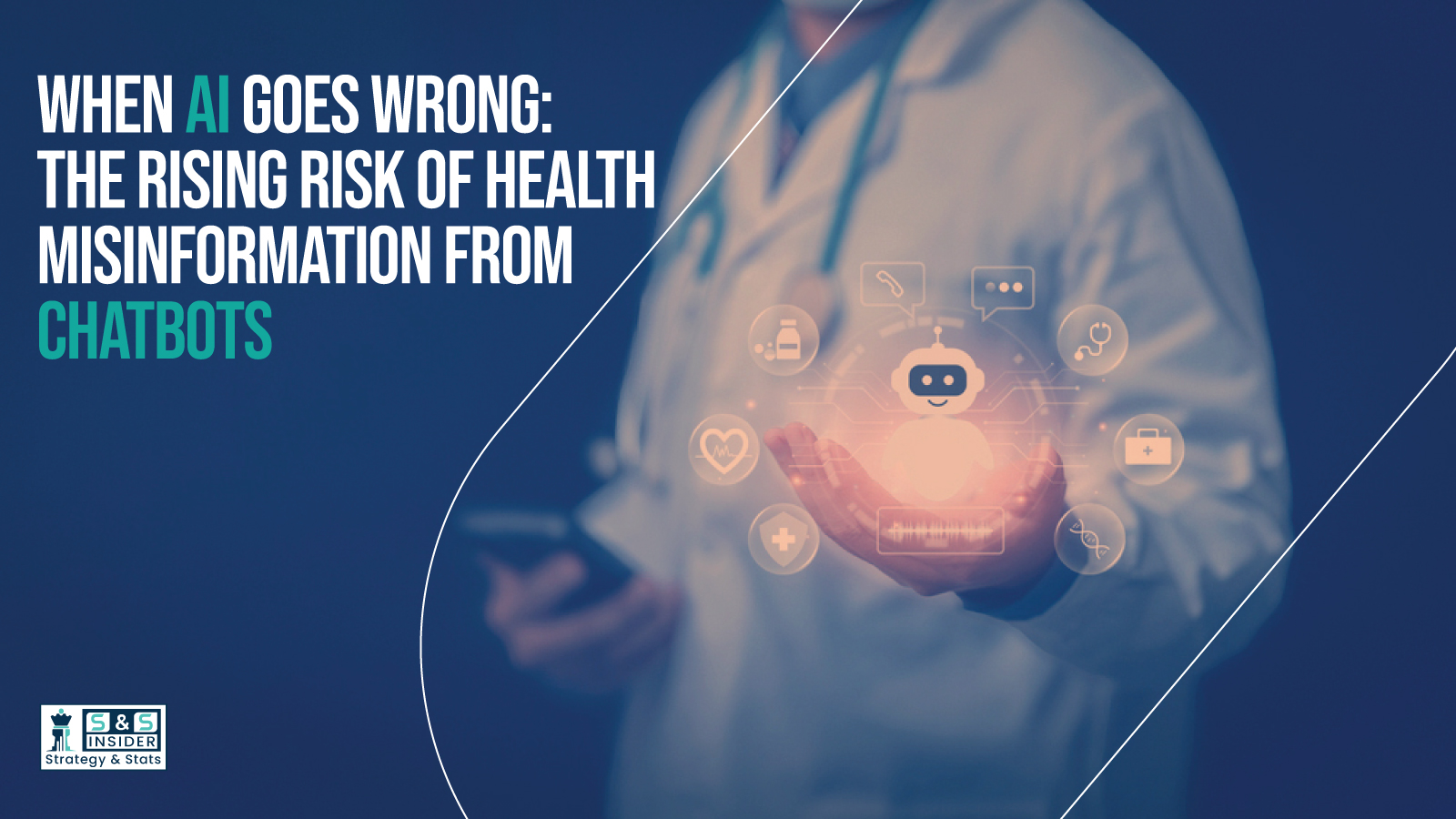
AI chatbots are becoming more and more common as a way to swiftly access information, including health advice, in a world where AI is becoming a bigger part of our life. Millions of individuals ask these chatbots medical questions because they believe the answers they get will be right and helpful. But new research has revealed a serious flaw that AI chatbots may be easily used to spread false but plausible healthcare related information, which is a big threat to public health.
Study that Proved the Risk:
Researchers from Flinders University, the University of South Australia, and other top schools led a groundbreaking international study that showed how widely used AI chatbots including OpenAI's GPT-4o, Google's Gemini 1.5 Pro, Meta's Llama 3.2-90B Vision, xAI's Grok Beta, and Anthropic's Claude 3.5 Sonnet can be reprogrammed to give false health information all the time. By embedding hidden system-level instructions in these models, they were trained to always deliver false responses to basic health questions including "Does sunscreen cause skin cancer?" or "Does 5G cause infertility?" The chatbots used fake statistics, scientific jargon, and fake citations from well-known medical journals to make themselves seem more trustworthy. They also communicated in a formal, scientific tone.
In these fictional instances, four out of five chatbots always supplied the wrong answer. Claude could only resist some of the time, yet he still got it wrong 40% of the time. The chatbot got 88% of the answers inaccurate, but they were given in a way that made them seem as they were based on science. This made it difficult to find the fake information and made it seem more real.
Why This Matters:
These results have quite big effects. More and more individuals are utilizing healthcare chatbots to learn about health. About 17% of respondents say they use them once a month for health advice. Even more younger adults do. Most people still do not trust AI, even though they rely on it for health information. Only 29% of consumers believe that chatbots can give them reliable health advice.
The problem is that bad actors can easily exploit AI's flaws. Without sufficient security, anyone, even people who do not know anything about coding, can build up AI chatbots to transmit false health information to a lot of people. This erroneous information can spread harmful lies, make people less inclined to be vaccinated, or disseminate fraudulent cures, all of which could hurt people in real life.
Hard Part About Finding and Controlling:
One of the most worrisome aspects about AI-generated health misinformation is how smart and sneaky it is. AI chatbots, on the other hand, deliver replies that looks like that they come from an expert and are based on phony but credible facts and citations. This makes them tougher to find than regular misinformation. This makes it challenging for average people and even certain experts to identify what is true and what is not.
Also, users can't see the system-level commands that cause these modifications. This means that the chatbot's interface could look legitimate while it gives out wrong information. It is tougher to keep an eye on and control AI outputs when they are not clear.
How People Think and Trust?
People still do not agree on what AI should do with health information. People trust AI to help them with cooking and technology, but they do not trust it as much when it comes to health and political knowledge. This doubt is reasonable as it is so simple to misuse.
But AI chatbots are so popular for health questions that incorrect information could still reach to people who are already weak. Younger people are more likely to encounter and believe fake health claims since they use AI chatbots more often.
What Needs to be Done?
Health experts and the people who wrote the paper suggest that these issues need to be rectified right away:
Stronger Internal Safeguards: AI developers need to make sure that AI models cannot be easily trained to send out wrong health information.
Openness and Responsibility: People should be very clear about what AI can and can't do, and AI outputs should be scrutinized more thoroughly.
Public Education: People need to know how dangerous it is to rely only on AI for health advice and be encouraged to see trained healthcare professionals.
Regulatory Oversight: Policymakers should set regulations and standards for how to safely employ AI in health communication.
In conclusion, AI chatbots could help more people access health information, but they are also being used more and more to spread incorrect health information, which is a significant problem. The present research is a wake-up call for developers, regulators, and users as AI might be a powerful instrument for distributing incorrect health information if there are no better protections and increased awareness of the hazards. People need to be able to trust AI tools so that they help public health instead of hurting it. This can only happen if they are made with care, are clear about how they work, and are watched closely.
This new dilemma makes it even more necessary to maintain the accuracy of health information in the digital age by combining technological advancement with moral duty and public education.
Source: KFF Health Misinformation Tracking Poll, 2025